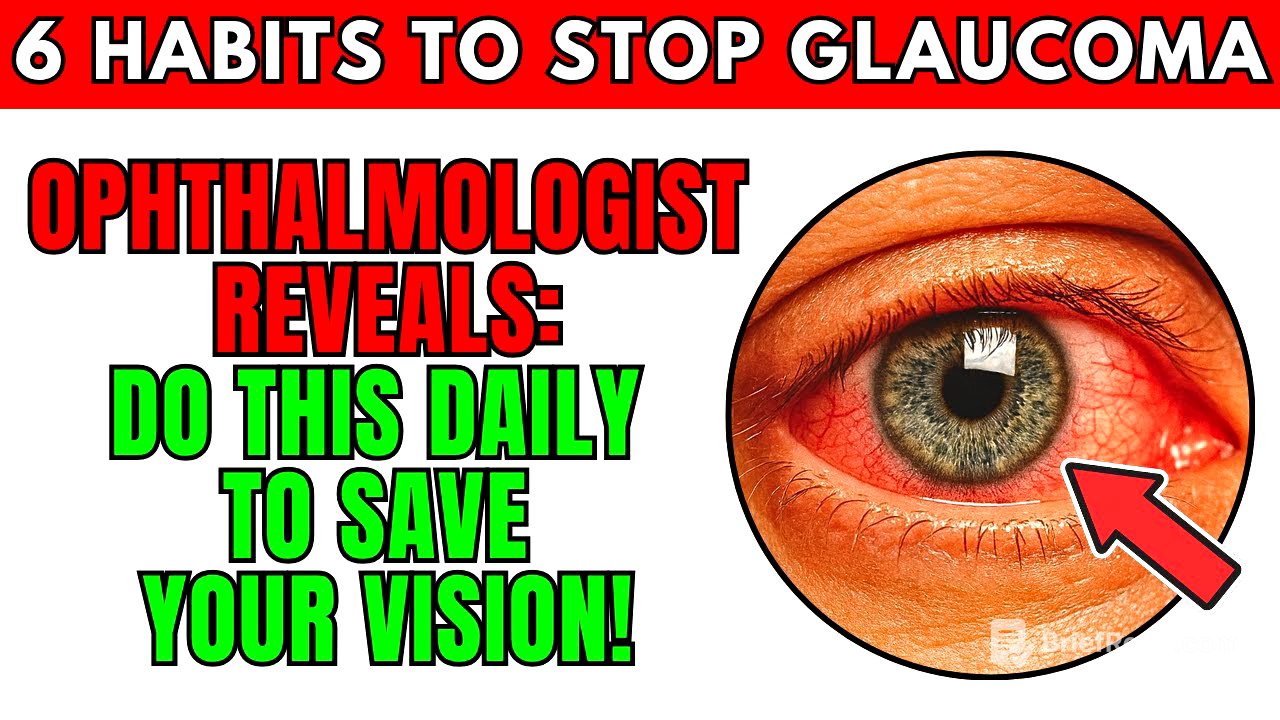TLDR;
This video discusses six powerful habits to protect vision and reduce the risk of glaucoma, a condition often called the "silent thief of sight." It emphasizes that early detection and lifestyle changes are crucial for preserving long-term eye health. The key habits include eating healthy foods rich in vitamins and antioxidants, staying hydrated properly, engaging in regular exercise, reducing eye strain from screens, protecting eyes from UV rays, and managing stress while ensuring adequate sleep.
- Eating nutrient-rich foods and staying hydrated supports eye health.
- Regular exercise and reducing screen time can alleviate eye strain.
- Protecting eyes from UV rays and managing stress are crucial for preventing glaucoma.
Introduction: The Silent Threat to Your Vision [0:00]
Glaucoma is a progressive condition that gradually steals sight without warning, often developing unnoticed until significant vision loss has occurred. It's caused by high eye pressure damaging the optic nerve, which connects the eyes to the brain. Unlike other vision issues, the damage from glaucoma is irreversible. Early detection and prevention are crucial due to the irreversible nature of vision loss from glaucoma. Factors such as age, family history, diabetes, high blood pressure, prolonged screen time, chronic stress, and poor circulation can increase the risk of glaucoma.
Eat More Healthy Foods [2:58]
A diet rich in vitamins, antioxidants, and healthy fats is crucial for maintaining long-term eye health and preventing vision loss. Leafy greens like spinach and kale contain lutein and zeaxanthin, which protect the optic nerve from oxidative damage. Colorful vegetables such as carrots, bell peppers, and sweet potatoes are packed with beta carotene and vitamin A, essential for maintaining sharp vision and preventing spikes in eye pressure. Omega-3 fatty acids, found in salmon, walnuts, flax seeds, and chia seeds, improve circulation, reduce inflammation, and help regulate eye pressure, key factors in lowering the risk of glaucoma. Excessive caffeine and high sugar diets may contribute to higher eye pressure and poor circulation, increasing the risk of vision problems over time.
Stay Hydrated the Right Way [4:55]
Proper hydration is essential for overall health and significantly impacts vision. Dehydration can lead to increased eye pressure, a major risk factor for glaucoma, and slows circulation, hindering the optic nerve's function. Instead of drinking large amounts of water at once, it's better to sip small amounts consistently to maintain stable pressure levels. Green tea contains antioxidants that protect the optic nerve, while chamomile and hibiscus tea have anti-inflammatory properties. Excessive alcohol and high caffeine intake can dehydrate the body, negatively impacting circulation and increasing the risk of vision problems.
Get Moving: Exercise for Your Eyes [6:45]
Regular movement helps reduce eye pressure, improves circulation to the optic nerve, and ensures essential oxygen and nutrients reach the eyes. Exercise also plays a key role in managing diabetes and high blood pressure, major risk factors for vision problems. Low-impact activities like walking, yoga, Tai Chi, and stretching provide safer ways to improve circulation without adding unnecessary strain. Simple eye exercises, such as palming, blinking exercises, and focus shifting, can relieve strain and improve focus.
Reduce Eye Strain from Screens [8:40]
Prolonged screen time can lead to eye strain, dryness, and increased eye pressure, contributing to vision problems and potentially raising the risk of glaucoma. The 20-20-20 rule—every 20 minutes, look at something 20 feet away for 20 seconds—helps rehydrate the eyes and prevent dryness. Adjusting screen brightness and positioning can also reduce strain; screens should be set to a comfortable brightness level with warm ambient lighting. Blue light blocking lenses may help reduce eye fatigue and protect vision over time.
Protect Your Eyes from UV Rays [10:36]
Long-term exposure to ultraviolet (UV) light can lead to eye damage, increased eye pressure, and a higher risk of glaucoma. Wearing sunglasses with 100% UV protection effectively blocks harmful rays. A wide-brimmed hat can further reduce exposure, especially when spending long periods outdoors. Polarized sunglasses with UVA and UVB filtering help shield against harmful rays while reducing glare.
Manage Stress and Sleep Well [12:32]
Chronic stress and lack of sleep can increase eye pressure, a major risk factor for glaucoma. Relaxation techniques like deep breathing exercises and meditation can lower stress hormones and improve circulation. The 4-7-8 breathing technique (breathe in for 4 seconds, hold for 7, exhale for 8) can calm the nervous system and reduce tension. Getting at least 7 to 9 hours of quality sleep each night is essential for preventing overworked eyes, dryness, and irritation. Reducing screen time before bed and using herbal teas like chamomile can improve sleep quality.









